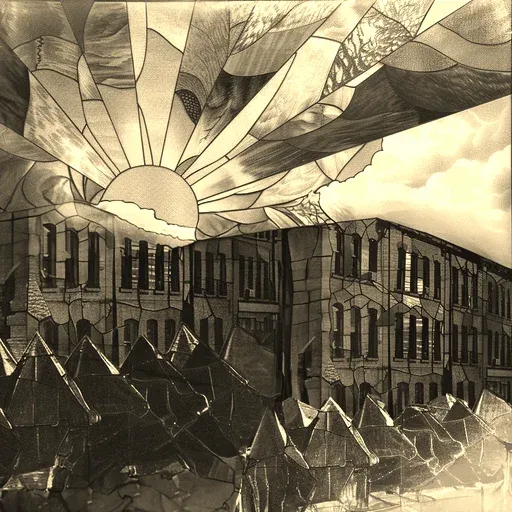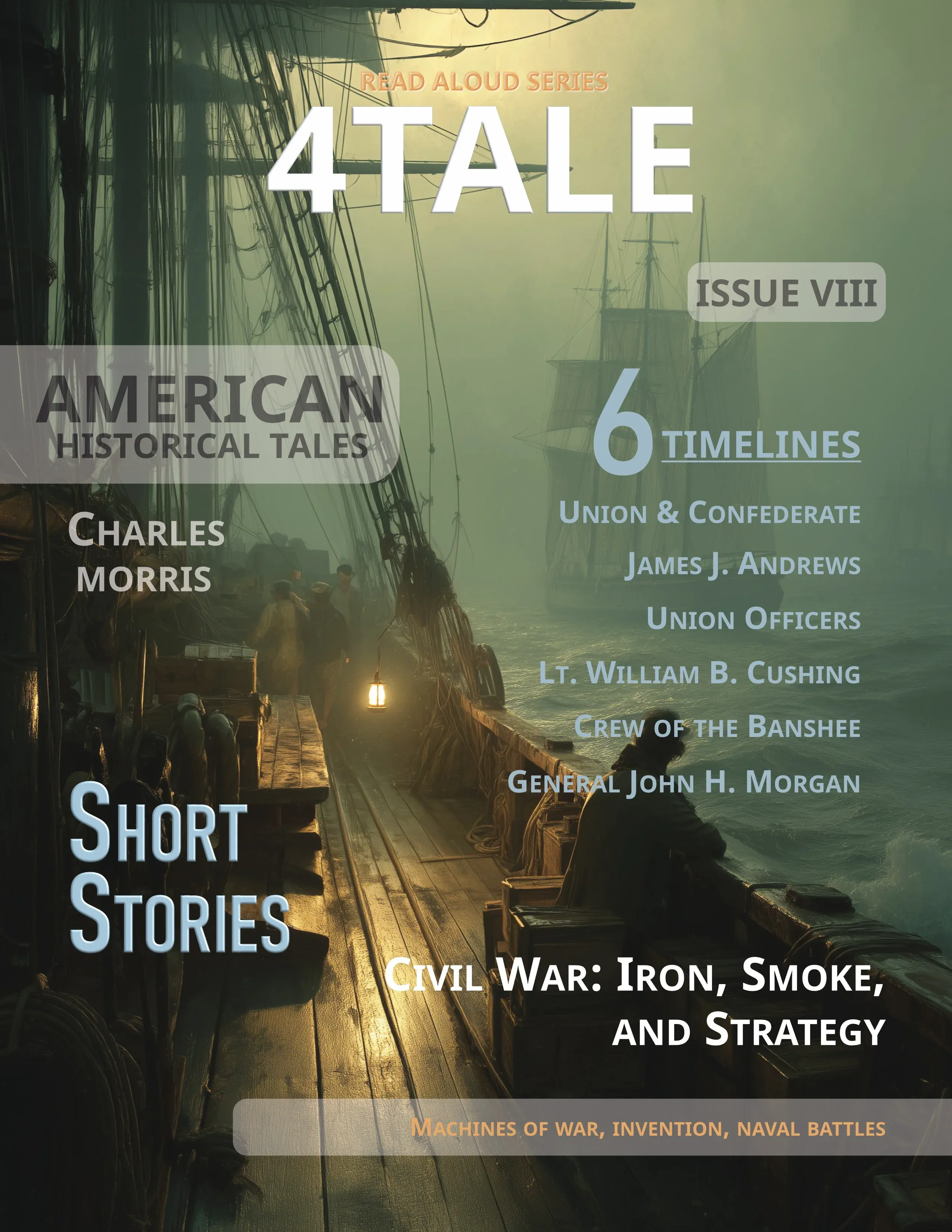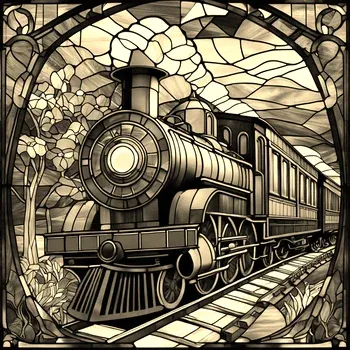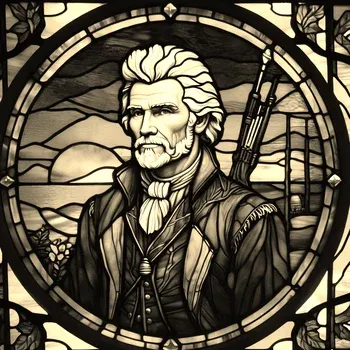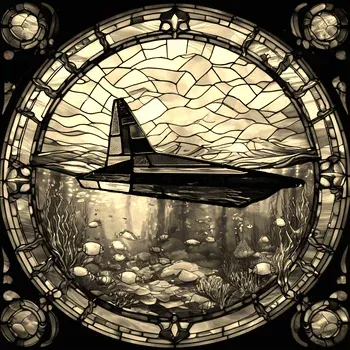During the winter of 1864 certain highly interesting operations were going on in the underground region of the noted Libby Prison, at Richmond, Virginia, at that time the by no means luxurious or agreeable home of some eleven hundred officers of the United States army. These operations, by means of which numerous captives were to make their way to fresh air and freedom, are abundantly worthy of being told, as an evidence of the ingenuity of man and the amount of labor and hardship he is willing to give in exchange for liberty.
Libby Prison was certainly not of palatial dimensions or accommodations. Before the war it had been a tobacco warehouse, situated close by the Lynchburg Canal, and a short distance from James River, whose waters ran by in full view of the longing eyes which gazed upon them from the close-barred prison windows. For the story which we have to tell some description of the make-up of this place of detention is a necessary preliminary. The building was three stories high in front, and four in the rear, its dimensions being one hundred and sixty-five by one hundred and five feet. It was strongly built, of brick and stone, while very thick partition walls of brick divided it internally into three sections. Each section had its cellar, one of them, with which we are particularly concerned, being unoccupied. The others were occasionally used. The first floor had three apartments, one used by the prison authorities, one as a hospital, while the middle one served the prisoners as a cooking-and dining-room. The second and third stories were the quarters of the prisoners, where, in seven rooms, more than eleven hundred United States officers ate, slept, and did all the duties of life for many months. It may even be said that they enjoyed some of the pleasures of life, for though the discipline was harsh and the food scanty and poor, man's love of enjoyment is not easily to be repressed, and what with occasional minstrel and theatrical entertainments among themselves, fencing exercises with wooden swords, games of cards, checkers and chess, study of languages, military tactics, etc., and other entertainments and pastimes, they managed somewhat to overcome the monotony of prison life and the hardship of prison discipline.
As regards chances of escape, they were very poor. A strong guard constantly surrounded the prison, and such attempts at escape as were made were rarely successful. The only one that had measurable success is that which we have to describe, in which a body of prisoners played the rôle of rats or beavers, and got out of Libby by an underground route.
The tunnel enterprise was the project of a few choice spirits only. It was too perilous to confide to many. The disused cellar was chosen as the avenue of escape. It was never visited, and might be used with safety. But how to get there was a difficult question to solve. And how to hide the fact that men were absent from roll-call was another. The latter difficulty was got over by several expedients. If Lieutenant Jones, for instance, was at work in the tunnel, Captain Smith would answer for him; then, when Smith was pronounced absent, he would step forward and declare that he had answered to his own name. His presence served as sure proof that he had not been absent. Other and still more ingenious methods were at times adopted, and the authorities were completely hoodwinked in this particular.
And now as regards the difficulty of entering the cellar. The cooking-room on the first floor contained, in its thick brick and stone partition, a fireplace, in front of which, partly masking it, three stoves were placed for the cooking operations of the prisoners. The floor of this fireplace was chosen as the initial point of excavation, from which a sloping passage might be made, under the floor of the next room, into the disused cellar.
Captain Hamilton, a stonemason by trade, began the excavation, removing the first brick and stone from the fireplace. It need scarcely be said that this work was done only at night, and with as little noise as possible. By day the opening was carefully closed, the bricks and stones being so ingeniously replaced that no signs of disturbance appeared. Thick as the wall was, a passage was quickly made through it, presenting an easy route to the cellar below. As for this cellar, it was dark, rarely or never opened, and contained only some old boxes, boards, straw, and the like débris, and an abundance of rats.
The cellar reached, and the route to it carefully concealed by day alike from the prison authorities and the prisoners not in the secret, the question of the tunnel followed. There were two possible routes. One of these led southward, towards the canal; the other eastward, under a narrow street, on the opposite side of which was a yard and stable, with a high board fence on the street side. The opposite side of the yard faced a warehouse.
A tunnel was commenced towards the canal. But it quickly struck a sewer whose odor was more than the workers could endure. It was abandoned, and a tunnel begun eastward, the most difficult part of it being to make an opening in the thick foundation wall. The hope of liberty, however, will bear man up through the most exhausting labors, and this fatiguing task was at length successfully performed. The remainder of the excavation was through earth, and was easier, though much the reverse of easy.
A few words will tell what was to be done, and how it was accomplished. The tunnel began near the floor of the cellar, eight or nine feet underground. Its length would need to be seventy or eighty feet. Only one man could work in it at a time, and this he had to do while crawling forward with his face downward, and with such tools as pocket-knives, small hatchets, sharp pieces of wood, and a broken fire-shovel. After the opening had made some progress two men could work in it, one digging, the other carrying back the earth, for which work frying-pans were brought into use.
Another point of some little importance was the disposal of the dirt. This was carelessly scattered over the cellar floor, with straw thrown over it, and some of it placed in boxes and barrels. The whole amount was not great, and not likely to be noticed if the officials should happen to enter the cellar, which had not been cleaned for years.
The work here described was begun in the latter part of January, 1864. So diligently was it prosecuted that the tunnel was pronounced finished on the night of February 8. During this period only two or three men could work at once. It was, indeed, frightfully exhausting labor, the confinement of the narrow passage and the difficulty of breathing in its foul air being not the least of the hardships to be endured. Work was prosecuted during part of the period night and day, the absence of a man from roll-call being concealed in various ways, as already mentioned.
The secret had been kept well, but not too well. Some workers had divulged it to their friends. Others of the prisoners had discovered that something was going on, and had been let into the affair on a pledge of secrecy. By the time the tunnel was completed its existence was known to something more than one hundred out of the eleven hundred prisoners. These were all placed on their word of honor to give no hint of the enterprise.
The night of February 8 was signalized by the opening of the outward end of the tunnel. A passage was dug upwards, and an opening made sufficiently large to permit the worker to take a look outward into the midnight air. What he saw gave him a frightful shock. The distance had been miscalculated; the opening was on the wrong side of the fence; there in full sight was one of the sentinels, pacing his beat with loaded musket.
Here was a situation that needed nerve and alertness. The protruded head was quickly withdrawn, and the earth which had been removed rapidly replaced, it being packed as tightly as possible from below to prevent its falling in. Word of the perilous error was sent back, and as the whisper passed from ear to ear every heart throbbed with a nervous shock. They had barely escaped losing the benefit of their weeks of exhausting labor.
The opening had been at the outward edge of the fence. The tunnel was now run two feet farther, and an opening again made. It was now on the inside of the fence, and in a safe place, for the stable adjoining the yard was disused.
The evening of the 9th was that fixed upon for flight. At a little after nine o'clock the exodus began. Those in the secret made their way to the cooking-room. The fireplace passage was opened, and such was the haste to avail themselves of it that the men almost struggled for precedence. Rules had been made, but no order could be kept. Silence reigned, however. No voice was raised above a whisper; every footstep was made as light as possible. It had been decided that fifty men should leave that night, and fifty the next, the prison clerk being deceived at roll-call by an artifice which had been practised more than once before, that of men leaving one end of the line and regaining the other unseen, to answer to the names of others. But the risk of discovery was too great. Every man wanted to be among the first. It proved impossible to restrain the anxious prisoners.
Down into the cellar passed a long line of descending men, dropping to its floor in rapid succession. Around the mouth of the tunnel a dense crowd gathered. But here only one man was allowed to pass at a time, on account of the bad air. The noise made in passing through told those behind how long the tunnel was occupied. The instant the noise ceased another plunged in.
The passage was no easy one. The tunnel was little more than wide enough to contain a man's body, and progress had to be made by kicking and scrambling forward. Two or three minutes, however, sufficed for the journey, the one who had last emerged helping his companion to the upper air.
Here was a carriage-way fronting southward, and leading into Canal Street, which ran along the Lynchburg Canal. Four guards paced along the south side of the prison within plain view. The risk was great. On emerging from the carriage-way the fugitives would be in full sight of these guards. But the risk must be taken. Watching the street for a moment in which it was comparatively clear, one by one they passed out and walked deliberately along the canal, in the direction away from the prison, like ordinary passers. This dangerous space was crossed with remarkable good fortune. If the guards noticed them at all, they must have taken them for ordinary citizens. The unusual number of passers, on that retired street, nearly the whole night long, does not seem to have attracted the attention of any of the guards. One hundred and nine escaped in all, yet not a man of them was challenged.
Canal Street once left, the first breath of relief was drawn. Those who early escaped soon found themselves in well-lighted streets, many of the shops still open, and numerous citizens and soldiers promenading. No one took notice of the fugitives, who strolled along the streets in small groups, laughing and talking on indifferent subjects, and, with no sign of haste, directing their steps towards the outskirts of the city.
As to what followed, there are almost as many adventures to relate as there were persons escaped. We shall confine ourselves to the narrative of one of them, Captain Earle, from whose story the particulars above given have been condensed. With him was one companion, Captain Charles E. Rowan.
They had provided themselves with a small quantity of food, but had no definite plans. It quickly occurred to them, however, that they had better make their way down the peninsula, towards Fortress Monroe, as the nearest locality where Union troops could probably be found. With the polar star for guide they set out, having left the perilous precincts of the city in their rear.
To travel by night, to hide by day, was their chosen plan. The end of their first night's journey found them in the vicinity of a swamp, some five miles from Richmond. Here, hid behind a screen of brushwood and evergreen bushes, they spent the long and anxious day, within hearing of the noises of the camps around the city, but without discovery.
A day had made a gratifying change in their situation. The day before they had been prisoners, with no apparent prospect of freedom for months. This day they were free, even if in a far from agreeable situation. Liberty solaced them for the weariness of that day's anxious vigil. How long they would remain free was the burning question of the hour. They were surrounded with perils. Could they hope to pass through them in safety? This only the event could tell.
The wintry cold was one of their difficulties. Their meagre stock of food was another. They divided this up into very small rations, with the hope that they could make it last for six days. The second night they moved in an easterly direction, and near morning ventured to approach a small cabin, which proved to be, as they had hoped, occupied by a negro. He gave them directions as to their course, and all the food he had,—a small piece of pone bread.
That day they suffered much, in their hiding place, from the cold. That night, avoiding roads, they made their way through swamp and thicket, finding themselves in the morning chilled with wet clothing and torn by briers. Near morning of the third night they reached what seemed to be a swamp. They concluded to rest on its borders till dawn, and then pass through it. Sleep came to them here. When they wakened it was full day, and an agreeable surprise greeted their eyes. What they supposed to be a swamp proved to be the Chickahominy River. The prospect of meeting this stream had given them much mental anxiety. Captain Rowan could not swim. Captain Earle had no desire to do so, in February. How it was to be crossed had troubled them greatly. As they opened their eyes now, the problem was solved. There lay a fallen tree, neatly bridging the narrow stream! In less than five minutes they were safely on the other side of this dreaded obstacle, and with far better prospects than they had dreamed of a few hours before.
By the end of the fourth night they found that their six days' stock of food was exhausted, and their strength almost gone. Their only hope of food now lay in confiscating a chicken from the vicinity of some farm-house, and eating it raw. For this purpose they cautiously approached the out-buildings of a farm-house. Here, while secretly scouting for the desired chicken, they were discovered by a negro. They had no need to fear him. There is no case on record of a negro betraying an escaped prisoner into the hands of the enemy. The sympathy of these dusky captives to slavery could be safely counted upon, and many a fugitive owed to them his safety from recapture.
"Glad to see you, gemmen," he cried, courteously. "You's Yankee off'cers, 'scaped from prison. It's all right wid me, gemmen. Come dis way; you's got to be looked arter."
The kindly sympathy of this dusky friend was so evident that they followed him without a thought of treachery. He led them to his cabin, where a blazing fire in an old-fashioned fireplace quickly restored that sense of the comfort of warmth which they had for days lost.
Several colored people were present, who surrounded and questioned them with the warmest sympathy. A guard was posted to prevent surprise, and the old mammy of the family hastened to prepare what seemed to them the most delicious meal they had ever tasted. The corn-bread pones vanished down their throats as fast as she could take them from the hot ashes in which they were baked. The cabbage, fried in a skillet, tasted like ambrosia. The meat no game could surpass in flavor, and an additional zest was added to it by their fancy that it had been furnished by the slave-holder's pantry. They had partaken of many sumptuous meals, but nothing to equal that set before them on the hospitable table of their dusky hosts. They were new men, with new courage, when they at length set out again, fully informed as to their route.
On they went through the cold, following the difficult paths which they chose in preference to travelled roads, while the dogs,—for the peninsula seemed to them to be principally peopled by dogs,—by their unceasing chorus of barks, right, left, and in front, kept them in a state of nervous exasperation. Many times did they turn from their course through fear of detection from these vociferous guardians of the night.
On the fifth day they were visited, in their place of concealment, by a snow-storm. Their suffering from cold now became so intolerable that they could not remain at rest, and they resumed their route about four o'clock. Two hours they went, and then, to their complete discouragement, found themselves back again at their starting-point, and cold, wet, tired, and hungry into the bargain.
As they stood there, expressing in very plain language their opinion of Dame Fortune, a covered cart approached. Taking it for granted that the driver was a negro, they hailed him; but to their dismay found that they had halted a white man.
There was but one thing to do. They told him that they were Confederate scouts, and asked him for information about the Yankee outposts. A short conference ensued, which ended in their discovering that they were talking to a man of strong Union sympathies, and as likely to befriend them as the negroes. This was a hopeful discovery. They now freely told him who they really were, and in return received valuable information as to roads, being told in addition where they could find a negro family who would give them food.
"If you can keep out of the way of rebel scouts for twenty-four hours more," he continued, "you will very likely come across some of your own troops. But you are on very dangerous ground. Here is the scouting-place of both armies, and guerillas and bushwackers are everywhere."
Thanking him, and with hearts filled with new hope, the wanderers started forward. At midnight they reached the negro cabin to which they had been directed, where, to their great relief, they obtained a substantial meal of corn-bread, pork, and rye coffee, and, what was quite as acceptable, a warming from a bright fire. The friendly black warned them, as their late informant had done, of the danger of the ground they had yet to traverse.
These warnings caused them to proceed very cautiously, after leaving the hospitable cabin of their sable entertainer. But they had not gone far before they met an unexpected and vexatious obstacle, a river or creek, the Diascon, as the negroes named it. They crossed it at length, but not without great trouble and serious loss of time.
It was now the sixth night since their escape. Hitherto Captain Rowan had been a model of strength, perseverance, and judgment. Now these qualities seemed suddenly to leave him. The terrible strain, mental and physical, to which they had been exposed, and their sufferings from cold, fatigue, and hunger, produced their effect at last, and he became physically prostrate and mentally indifferent. Captain Earle, who retained his energies, had great difficulty in persuading him to proceed, and before daybreak was obliged to let him stop and rest.
When dawn appeared they found themselves in an open country, affording poor opportunities for concealment. They felt sure, however, that they must be near the Union outposts. With these considerations they concluded to make their journey now by day, and in a road. In truth, Rowan had lost all care as to how they went and what became of them, and his companion's energy and decision were on the decline.
Onward they trudged, mile by mile, with keen enjoyment of the highway after their bitter experience of by-ways, and somewhat heedless of consequences, though glad to perceive that no human form was in sight. Nine o'clock came. Before them the road curved sharply. They walked steadily onward. But as they neared the curve there came to their ears a most disquieting sound, the noise of hoofs on the hard road-bed, the rattle of cavalry equipments. A force of horsemen was evidently approaching. Were they Union or Confederate? Was freedom or renewed captivity before them? They looked quickly to right and left. No opportunity for concealment appeared. Nor was there a moment's time for flight, for the sound of hoof-beats was immediately followed by the appearance of mounted and uniformed men, a cavalry squad, still some hundreds of yards away, but riding towards them at full gallop.
The eyes of the fugitives looked wistfully and anxiously towards them. Thank Heaven! they wore the Union blue! Those guidons which rose high in the air bore the Union colors! They were United States cavalry! Safety was assured!
In a minute more the rattling hoofs were close at hand, the band of rescuers were around them; eager questions, glad answers, heartfelt congratulations filled the air. In a very few minutes the fugitives were mounted and riding gladly back in the midst of their new friends, to be banqueted, feasted, and fêted, until every vestige of their hardships had been worn away by human kindness.
As to their feelings at this happy termination of their heroic struggle for freedom, words cannot express them. The weary days, the bitter disappointments, the harsh treatment of prison life; the days and nights of cold, hunger, and peril, wanderings through swamps and thorny thickets, hopes and despairs of flight; all were at an end, and now only friends surrounded them, only congratulating and commiserating voices met their ears. It was a feast of joy never to be forgotten.
A few words will finish. One hundred and nine men had escaped. Of these, fifty-five reached the Union lines. Fifty-four were captured and taken back to prison. Some of the escaped officers, more swift in motion or fortunate in route than the others, reached the Union lines on their third day from Richmond. Their report that others were on the road bore good fruit. General Butler, then in command at Fortress Monroe, sent out, on alternate days, the Eleventh Pennsylvania Cavalry and the First New York Rifles to patrol the country in search of the escaping prisoners, with tall guidons to attract their attention if they should be in concealment. Many of the fugitives were thus rescued. The adventures of two, as above given, must serve for example of them all.
